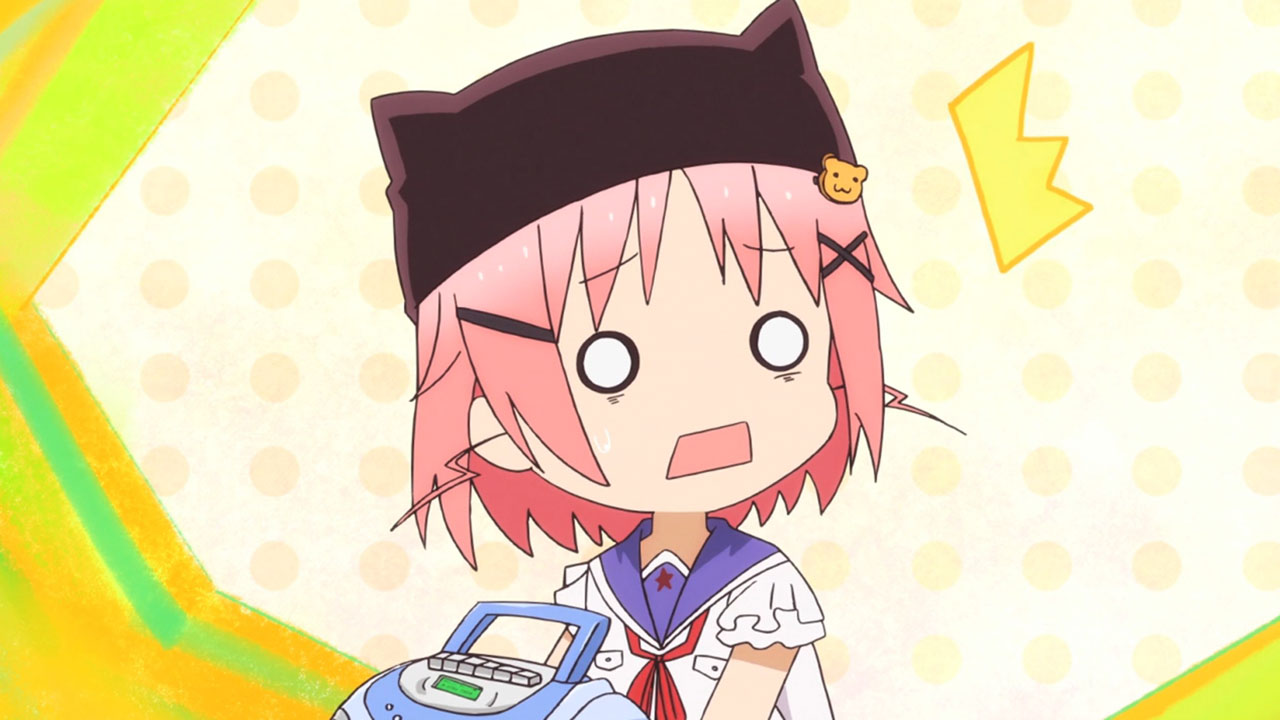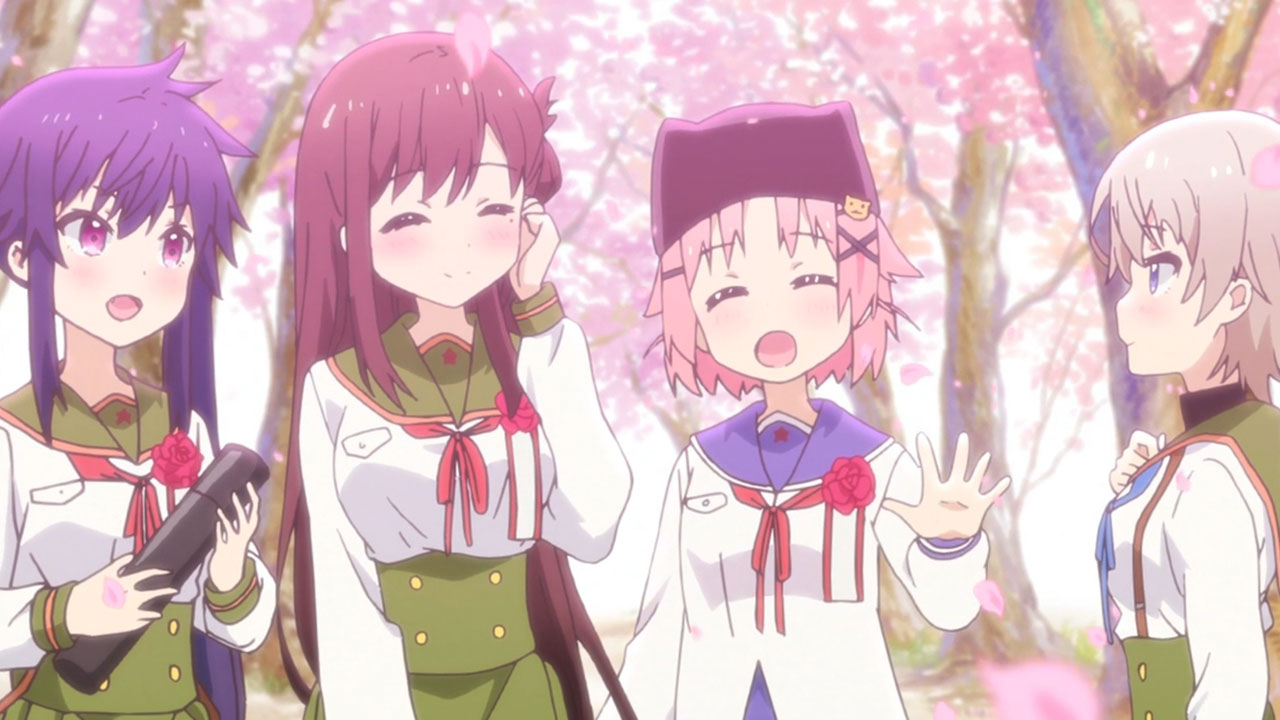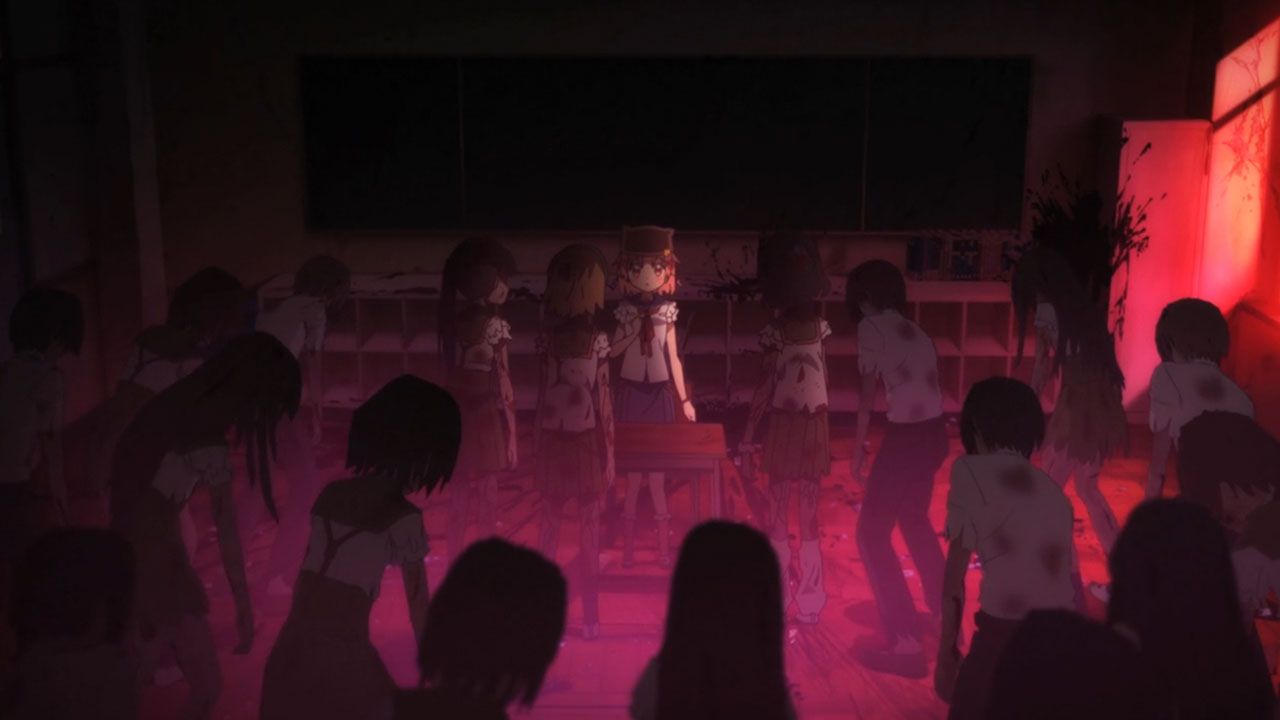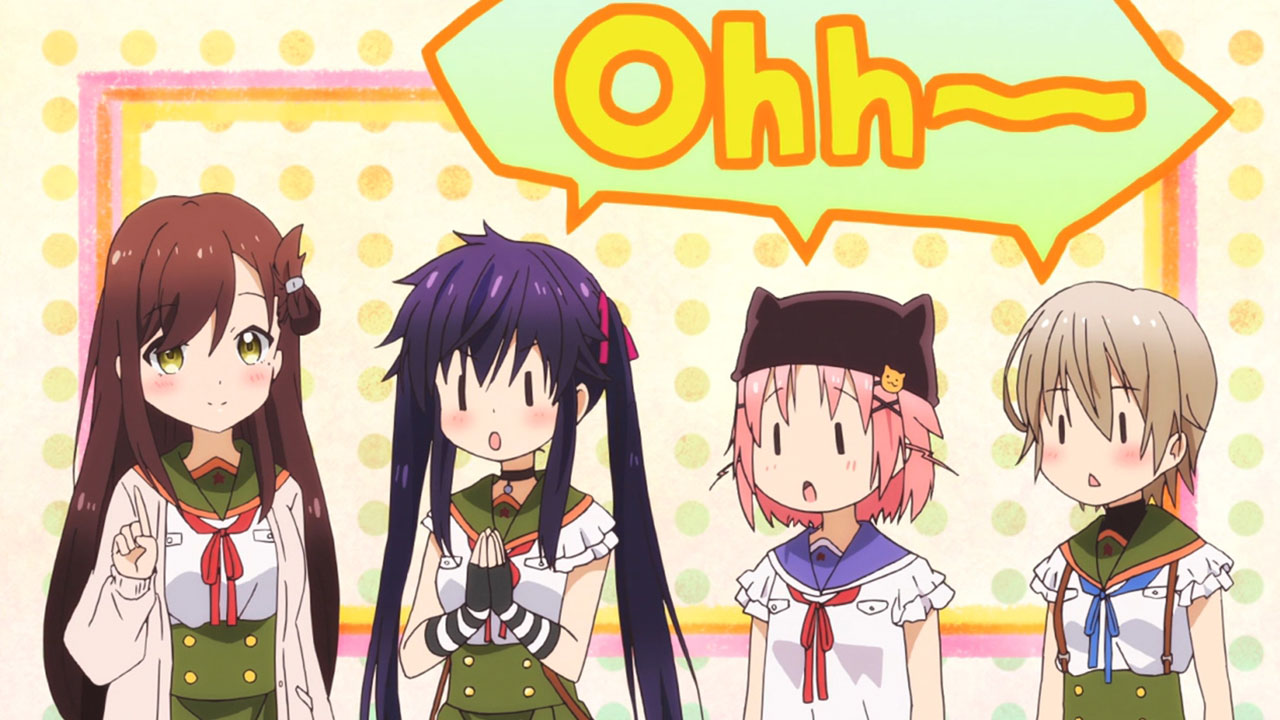Overview

Before we get started, if you have not seen or heard anything about Gakkougurashi yet, drop everything and watch the first episode. Don't do any research or read a little bit further. The gimmick in the first episode is ruined somewhat by knowing anything about the show. So go watch it now. Drop that baby you're holding and go!
OK, we good? Right, spoilers ahead, albeit only for episode 1.
Zombie apocalypse stories are tired and overused. Anything that approaches the zombie apocalypse scenario by focusing on why it happened and how our characters plan to survive are boring as we've all seen them before. If you are going to use the zombie apocalypse, you have to use it in a new and unique way. You can still use the odd trope from your typical zombie story, but it must be presented differently to stop it being rote and cliche. This is what Gakkou Gurashi does and it's what makes it stand out. Contrasting horror with moeblobs has been done before by Higurashi and, to a lesser extent, Madoka Magica. But the difference is Madoka and Higurashi would have both basically worked if the characters didn't look cutesy. Gakkougurashi's emulation of the "4 cute girls have fun in school and do nothing else" genre is very deliberate and gives the show a totally different tone. But why is it contrasting the cute, slice-of-life genre of anime with the zombie apocalypse? What message is it trying to convey by doing so, if we assume the writers are clever and they're doing this for more than shock value? I'll take a look at two alternative interpretations that I've seen crop up in discussions surrounding the show.
Afraid to leave school

The real world is a scary place. When you approach your final years in school and are forced with making a number of decisions which supposedly decide the rest of your life, it's understandable why one might find this task daunting. Abandoning the freedom of your youth and leaving the friends that have been so important to you to join the adult world where you must start making your own decisions is something I imagine a lot of people are afraid of doing. Particularly if you are someone like Yuki, Gakkougurashi's airheaded beacon of positivity. For someone like her who struggles with lessons but enjoys school so much, you can see why you might go so far as to try reject the idea that you have to leave school.
This is what Gakkougurashi is a representation of. The fears of students set to leave school soon and how they might act oblivious to the harsh decisions they have to make. Forget that you have to leave this school sooner or later. The outside world is too scary to deal with. Barricade yourself in, physically and mentally, and pretend as though you never have to leave school. Megu-ne will be your teacher who is always there to guide you. You will always be able to mess about with your classmates. Forget leaving school, we can set up the School Living Club and live in school all the time!
Escapism into anime

Have you ever noticed how many anime each season focus on high school students? Considering the audience for the late night anime should be adults with enough disposable income to afford the incredibly expensive Blu-ray discs that make up the vast majority of profits for animation studios, shouldn't more anime focus on people the same age as the audience? The predominant theory behind why so many anime are set in school is because the crushing reality of salaryman life in Japan makes people who are trying to find escapism yearn for the last time they felt truly free. That would be when they were in high school. This theory gets stronger when it comes to the moe moe slice of life anime. No conflict, no problems, just cute girls doing cute things allowing you to escape from the pressure of your everyday life.
This interpretation is a bit darker and even rather confrontational towards the very audience that are keeping the anime afloat. "Look at you", Gakkougurashi is saying. "You are just like Yuki. Never mind that in the real world your life is crashing around you. You instead decide to act oblivious to the entire situation and pretend you are just taking part in this cutesy idealised fantasy world". Both interpretations are based off similar ideas that Yuki pretending like the zombie apocalypse hasn't happened is representative of someone in the real world acting like a very real problem doesn't exist by attempting to live in their ideal world. The main difference is whether the show is acting understanding of experiences the audience may be going through or have gone through, or whether it's being confrontational.

Or it could just be doing it for shallow shock value. Who knows? I suggest watching the latest episodes with these theories in mind and see which holds up better.




